- Jul 2, 2018
- 3,502
 |
Headquarters |
 |
Agriculture House, Civic, Australian Capital Territory |
Ministers |
| Office: | Officeholder: | Image: |
|---|---|---|
| Minister for Agriculture, Fisheries and Forestry | The Honourable Senator Joe Ludwig | |
| Secretary of the Department of Agriculture, Fisheries and Forestry | Joanna Hewitt, AO |  |
Overview |
| The Trade and Market Access Division advances the interests of Australia’s rural industries by leading the department’s bilateral interactions with trading partners and coordinating associated portfolio input. This support efforts to maintain and improve market access, resolve trade impediments and manage partner-country engagement across the portfolio. |
Overseas Agriculture Counsellor Network |
| Post: | Market Coverage: | Location: | Key Personnel: |
|---|---|---|---|
| London | United Kingdom | High Commission of Australia, London, United Kingdom |
|
| Beijing | China Mongolia | Embassy of Australia, Beijing, China |
|
| Washington D.C. | United States Mexico Central America Caribbean | Embassy of Australia, Washington D.C., United States |
|
| Bangkok | Thailand Myanmar The Philippines | Embassy of Australia, Bangkok, Thailand |
|
| Jakarta | Indonesia Timor-Leste | Embassy of Australia, Jakarta, Indonesia |
|
| Wellington | New Zealand Pacific Islands Papua New Guinea | High Commission of Australia, Wellington, New Zealand |
|
| Paris | Europe (excl. UK) | Embassy of Australia, Paris, France |
|
| Tokyo | Japan Taiwan | Embassy of Australia, Tokyo, Japan |
|
| Addis Ababa | Subsaharan Africa | Embassy of Australia, Addis Ababa, Ethiopia |
|
| Brasilia | South America | Embassy of Australia, Brasilia, Brazil |
|
| Kuala Lumpur | Malaysia Singapore | Embassy of Australia, Kuala Lumpur, Malaysia |
|
| New Delhi | South Asia Central Asia | Embassy of Australia, New Delhi, India |
|
| Ottawa | Canada | High Commission of Australia, Ottawa, Canada |
|
| Seoul | Korea | Embassy of Australia, Seoul, South Korea |
|
| Dubai | Middle East North Africa | Consulate-General of Australia, Dubai, United Arab Emirates |
|
| Hanoi | Vietnam Cambodia Laos | Embassy of Australia, Hanoi, Vietnam |
|
 |
| Type: | Amount: | Image: |
|---|---|---|
| Biosecurity Officers | 3,300 |
| Unit: | Size: | Base: |
|---|---|---|
| Biosecurity Operational Intelligence and Coordination Centre | 50x Biosecurity Officers | Agriculture House, Canberra |
| Unit: | Size: | Jurisdiction: |
|---|---|---|
| Border and Traveller Operations New South Wales and Australian Capital Territory | 375x Biosecurity Officers |
|
| Border and Traveller Operations Victoria | 375x Biosecurity Officers |
|
| Border and Traveller Operations South Queensland | 250x Biosecurity Officers |
|
| Border and Traveller Operations Western Australia | 150x Biosecurity Officers |
|
| Border and Traveller Operations South Australia | 100x Biosecurity Officers |
|
| Border and Traveller Operations North Queensland | 100x Biosecurity Officers |
|
| Border and Traveller Operations Tasmania | 25x Biosecurity Officers |
|
| Border and Traveller Operations Northern Territory | 25x Biosecurity Officers |
|
| Unit: | Size: | Jurisdiction: |
|---|---|---|
| Cargo and Shipping Operations South (New South Wales, Victoria, Tasmania) | 775x Biosecurity Officers |
|
| Cargo and Shipping Operations North (Queensland, Northern Territory) | 375x Biosecurity Officers |
|
| Cargo and Shipping Operations West (Western Australia, South Australia) | 250x Biosecurity Officers |
|
| Unit: | Size: | Base: |
|---|---|---|
| Animal Import Operations | 80x Biosecurity Officers | All Ports |
| National Animal Disease Preparedness Centre | 50x Biosecurity Officers | Agriculture House, Canberra |
| Animal Biosecurity | 50x Biosecurity Officers | Agriculture House, Canberra |
| Animal Health Policy | 15x Biosecurity Officers | Agriculture House, Canberra |
| Animal Strategy and Coordination | 15x Biosecurity Officers | Agriculture House, Canberra |
| Chief Veterinary Office | 15x Biosecurity Officers | Agriculture House, Canberra |
| Unit: | Size: | Base: |
|---|---|---|
| Plant and Biologicals Import Operations | 80x Biosecurity Officers | All Ports |
| National Plant Sciences and Risk Assessment Centre | 50x Biosecurity Officers | Agriculture House, Canberra |
| Plant Protection and Environmental Biosecurity | 50x Biosecurity Officers | Agriculture House, Canberra |
| Plant Health Policy | 15x Biosecurity Officers | Agriculture House, Canberra |
| Plant Systems and Strategies | 15x Biosecurity Officers | Agriculture House, Canberra |
| Chief Plant Protection Office | 15x Biosecurity Officers | Agriculture House, Canberra |
Code:
[TABLE][TR][TD]
[CENTER][COLOR=rgb(255, 255, 255)][SIZE=5][B]INCOMING PASSENGER CARD[/B][/SIZE][/COLOR][/CENTER]
[/TD][/TR]
[TR][TD]
[CENTER][B][COLOR=rgb(255, 255, 255)][SIZE=4]PLEASE COMPLETE IN ENGLISH WITH A BLUE OR BLACK PEN[/SIZE][/COLOR][/B][/CENTER]
[/TD][/TR][/TABLE][TABLE][TR][TD]
[B][COLOR=rgb(255, 255, 255)]Family/Surname:[/COLOR][/B]
[/TD][TD]
[/TD][/TR]
[TR][TD]
[B][COLOR=rgb(255, 255, 255)]Given Names:[/COLOR][/B]
[/TD][TD]
[/TD][/TR]
[TR][TD]
[B][COLOR=rgb(255, 255, 255)]Passport Number:[/COLOR][/B]
[/TD][TD]
[/TD][/TR]
[TR][TD]
[B][COLOR=rgb(255, 255, 255)]Flight Number or Name of Ship:[/COLOR][/B]
[/TD][TD]
[/TD][/TR]
[TR][TD]
[B][COLOR=rgb(255, 255, 255)]Intended Address in Australia:[/COLOR][/B]
[/TD][TD]
[/TD][/TR][/TABLE][TABLE][TR][TD]
[CENTER][COLOR=rgb(255, 255, 255)][B][SIZE=4]PLEASE [X] AND ANSWER EVERY QUESTION - IF UNSURE, Yes [X][/SIZE][/B][/COLOR][/CENTER]
[/TD][/TR][/TABLE][TABLE][TR][TD]
[B][COLOR=rgb(255, 255, 255)]Do you intend to live in Australia for the next 12 months?[/COLOR][/B]
[/TD][TD]
Yes []
[/TD][TD]
No []
[/TD][/TR][/TABLE][TABLE][TR][TD]
[LEFT][B][COLOR=rgb(255, 255, 255)][SIZE=4]If you are NOT an Australian Citizen:[/SIZE][/COLOR][/B][/LEFT]
[/TD][/TR][/TABLE][TABLE][TR][TD]
[B][COLOR=rgb(255, 255, 255)]Do you have tuberculosis?[/COLOR][/B]
[/TD][TD]
Yes []
[/TD][TD]
No []
[/TD][/TR]
[TR][TD]
[B][COLOR=rgb(255, 255, 255)]Do you have any criminal conviction/s?[/COLOR][/B]
[/TD][TD]
Yes []
[/TD][TD]
No []
[/TD][/TR][/TABLE][TABLE][TR][TD]
[COLOR=rgb(255, 255, 255)][SIZE=4][B]Are you bringing into Australia:[/B][/SIZE][/COLOR]
[/TD][/TR][/TABLE][TABLE][TR][TD]
[COLOR=rgb(255, 255, 255)][B]1. Goods that may be prohibited or subject to restrictions, such as medicines, seroids, illegal pornography, firearms, weapons or illicit drugs?[/B][/COLOR]
[/TD][TD]
Yes []
[/TD][TD]
No []
[/TD][/TR]
[TR][TD]
[B][COLOR=rgb(255, 255, 255)]2. More than 2250mL of alcoholic beverages or 250 cigarettes or 250g of tobacco products?[/COLOR][/B]
[/TD][TD]
Yes []
[/TD][TD]
No []
[/TD][/TR]
[TR][TD]
[B][COLOR=rgb(255, 255, 255)]3. Goods obtained overseas or purchased duty and/or tax free in Australia with a combined total price of more than AUD$900, including gifts?[/COLOR][/B]
[/TD][TD]
Yes []
[/TD][TD]
No []
[/TD][/TR]
[TR][TD]
[B][COLOR=rgb(255, 255, 255)]4. Goods/samples for business/commercial use?[/COLOR][/B]
[/TD][TD]
Yes []
[/TD][TD]
No []
[/TD][/TR]
[TR][TD]
[B][COLOR=rgb(255, 255, 255)]5. AUD$10,000 or more in Australian or foreign currency equivalent?
NOTE: If a Border Force or police officer asks, you must report travellers cheques, cheques, money orders or other bearer negotiable instruments of any amount.[/COLOR][/B]
[/TD][TD]
Yes []
[/TD][TD]
No []
[/TD][/TR]
[TR][TD]
[B][COLOR=rgb(255, 255, 255)]6. Meat, poultry, fish, seafood, eggs, dairy, fruit, vegetables? [/COLOR][/B]
[/TD][TD]
Yes []
[/TD][TD]
No []
[/TD][/TR]
[TR][TD]
[B][COLOR=rgb(255, 255, 255)]7. Grains, seeds, bulbs, straw, nuts, plants, parts of plants, traditional medicines or herbs, wooden articles?[/COLOR][/B]
[/TD][TD]
Yes []
[/TD][TD]
No []
[/TD][/TR]
[TR][TD]
[B][COLOR=rgb(255, 255, 255)]8. Animals, parts of animals, animal products including equipment, pet food, eggs, biologicals, specimens, birds, fish, insects, shells, bee products?[/COLOR][/B]
[/TD][TD]
Yes []
[/TD][TD]
No []
[/TD][/TR]
[TR][TD]
[B][COLOR=rgb(255, 255, 255)]9. Soil, items with soil attached or used in freshwater areas e.g. sports/recreational equipment, shoes?[/COLOR][/B]
[/TD][TD]
Yes []
[/TD][TD]
No []
[/TD][/TR]
[TR][TD]
[B][COLOR=rgb(255, 255, 255)]10. Have you been in contact with farms, farm animals, wilderness areas or freshwater streams/lakes etc in the past 30 days?[/COLOR][/B]
[/TD][TD]
Yes []
[/TD][TD]
No []
[/TD][/TR]
[TR][TD]
[B][COLOR=rgb(255, 255, 255)]11. Were you in Africa, South/Central America or the Caribbean in the last 6 days?[/COLOR][/B]
[/TD][TD]
Yes []
[/TD][TD]
No []
[/TD][/TR][/TABLE][TABLE][TR][TD]
[CENTER][COLOR=rgb(255, 255, 255)][SIZE=4][B]DECLARATION[/B][/SIZE]
[SIZE=3][B][I]The information I have given is true, correct and complete. I understand failure to answer any questions may have serious consequences.[/I][/B][/SIZE][/COLOR][/CENTER]
[/TD][/TR][/TABLE][TABLE][TR][TD]
[B][COLOR=rgb(255, 255, 255)]Your signature:[/COLOR][/B]
[/TD][TD]
[/TD][/TR]
[TR][TD]
[B][COLOR=rgb(255, 255, 255)]Date:[/COLOR][/B]
[/TD][TD]
Day: [][] Month: [][] Year: [][][][]
[/TD][/TR][/TABLE][TABLE][TR][TD]
[CENTER][COLOR=rgb(255, 255, 255)][SIZE=4][B]YOUR CONTACT DETAILS IN AUSTRALIA[/B][/SIZE][/COLOR][/CENTER]
[/TD][/TR][/TABLE][TABLE][TR][TD]
[B][COLOR=rgb(255, 255, 255)]Phone:[/COLOR][/B]
[/TD][TD]
[/TD][/TR]
[TR][TD]
[B][COLOR=rgb(255, 255, 255)]Address:[/COLOR][/B]
[/TD][TD]
[/TD][/TR]
[TR][TD]
[B][COLOR=rgb(255, 255, 255)]State (e.g. NSW):[/COLOR][/B]
[/TD][TD]
[][][]
[/TD][/TR][/TABLE][TABLE][TR][TD]
[CENTER][COLOR=rgb(255, 255, 255)][SIZE=4][B]EMERGENCY CONTACT DETAILS[/B][/SIZE][/COLOR][/CENTER]
[/TD][/TR][/TABLE][TABLE][TR][TD]
[B][COLOR=rgb(255, 255, 255)]Name:[/COLOR][/B]
[/TD][TD]
[/TD][/TR]
[TR][TD]
[B][COLOR=rgb(255, 255, 255)]Phone:[/COLOR][/B]
[/TD][TD]
[/TD][/TR]
[TR][TD]
[B][COLOR=rgb(255, 255, 255)]Address:[/COLOR][/B]
[/TD][TD]
[/TD][/TR][/TABLE][TABLE][TR][TD]
[CENTER][COLOR=rgb(255, 255, 255)][SIZE=4][B]PLEASE COMPLETE IN ENGLISH[/B][/SIZE][/COLOR][/CENTER]
[/TD][/TR][/TABLE][TABLE][TR][TD]
[B][COLOR=rgb(255, 255, 255)]In which country did you board this ship or flight?[/COLOR][/B]
[/TD][TD]
[/TD][/TR]
[TR][TD]
[B][COLOR=rgb(255, 255, 255)]What is your usual occupation?[/COLOR][/B]
[/TD][TD]
[/TD][/TR]
[TR][TD]
[B][COLOR=rgb(255, 255, 255)]Nationality as shown on passport:[/COLOR][/B]
[/TD][TD]
[/TD][/TR]
[TR][TD]
[B][COLOR=rgb(255, 255, 255)]Date of birth:[/COLOR][/B]
[/TD][TD]
Day: [][] Month: [][] Year: [][][][]
[/TD][/TR][/TABLE][TABLE][TR][TD]
[CENTER][COLOR=rgb(255, 255, 255)][SIZE=4][B]PLEASE [X] AND ANSWER A OR B OR C[/B][/SIZE][/COLOR][/CENTER]
[/TD][/TR][/TABLE][TABLE][TR][TD]
[B][COLOR=rgb(255, 255, 255)][U]A. Migrating permanently to Australia[/U][/COLOR][/B]
[/TD][TD]
[]
[/TD][/TR]
[TR][TD]
[B][COLOR=rgb(255, 255, 255)][U]B. Visitor or temporary entrant[/U][/COLOR][/B]
[/TD][TD]
[]
[/TD][/TR]
[TR][TD]
[B][COLOR=rgb(255, 255, 255)]Your intended length of stay in Australia:[/COLOR][/B]
[/TD][TD]
[][] Years, [][] Months OR [][] Days
[/TD][/TR]
[TR][TD]
[B][COLOR=rgb(255, 255, 255)]Your country of residence:[/COLOR][/B]
[/TD][TD]
[/TD][/TR]
[TR][TD]
[COLOR=rgb(255, 255, 255)][B][U]C. Resident returning to Australia[/U][/B][/COLOR]
[/TD][TD]
[]
[/TD][/TR]
[TR][TD]
[COLOR=rgb(255, 255, 255)][B]Country where you spent most time abroad:[/B][/COLOR]
[/TD][TD]
[/TD][/TR][/TABLE][TABLE][TR][TD]
[CENTER][COLOR=rgb(255, 255, 255)][SIZE=4][B]IF ANSWERED B OR C:[/B][/SIZE][/COLOR][/CENTER]
[/TD][/TR][/TABLE][TABLE][TR][TD]
[COLOR=rgb(255, 255, 255)]1. Convention/Conference[/COLOR]
[/TD][TD]
[]
[/TD][/TR]
[TR][TD]
[COLOR=rgb(255, 255, 255)]2. Business[/COLOR]
[/TD][TD]
[]
[/TD][/TR]
[TR][TD]
[COLOR=rgb(255, 255, 255)]3. Visiting friends or relatives[/COLOR]
[/TD][TD]
[]
[/TD][/TR]
[TR][TD]
[COLOR=rgb(255, 255, 255)]4. Employment[/COLOR]
[/TD][TD]
[]
[/TD][/TR]
[TR][TD]
[COLOR=rgb(255, 255, 255)]5. Education[/COLOR]
[/TD][TD]
[]
[/TD][/TR]
[TR][TD]
[COLOR=rgb(255, 255, 255)]6. Exhibition[/COLOR]
[/TD][TD]
[]
[/TD][/TR]
[TR][TD]
[COLOR=rgb(255, 255, 255)]7. Holiday[/COLOR]
[/TD][TD]
[]
[/TD][/TR]
[TR][TD]
[COLOR=rgb(255, 255, 255)]8. Other[/COLOR]
[/TD][TD]
[]
[/TD][/TR][/TABLE][TABLE][TR][TD]
[CENTER][COLOR=rgb(255, 255, 255)][SIZE=5][B]MAKE SURE YOU HAVE COMPLETED BOTH SIDES OF THIS CARD. PRESENT THIS CARD ON ARRIVAL WITH YOUR PASSPORT.[/B][/SIZE][/COLOR][/CENTER]
[/TD][/TR]
[TR][TD]
[COLOR=rgb(255, 255, 255)][SIZE=3][B]Information sought on this form is required to administer immigration, customs, quarantine, statistical, health, wildlife and other currency laws of Australia and its collection is authorised by legislation. It will be disclosed only to agencies administering these areas and authorised or required to receive it under Australian law.[/B][/SIZE][/COLOR]
[/TD][/TR][/TABLE]INCOMING PASSENGER CARD |
PLEASE COMPLETE IN ENGLISH WITH A BLUE OR BLACK PEN |
| Family/Surname: | |
| Given Names: | |
| Passport Number: | |
| Flight Number or Name of Ship: | |
| Intended Address in Australia: |
PLEASE [X] AND ANSWER EVERY QUESTION - IF UNSURE, Yes [X] |
| Do you intend to live in Australia for the next 12 months? | Yes [] | No [] |
| If you are NOT an Australian Citizen: |
| Do you have tuberculosis? | Yes [] | No [] |
| Do you have any criminal conviction/s? | Yes [] | No [] |
| Are you bringing into Australia: |
| 1. Goods that may be prohibited or subject to restrictions, such as medicines, seroids, illegal pornography, firearms, weapons or illicit drugs? | Yes [] | No [] |
| 2. More than 2250mL of alcoholic beverages or 250 cigarettes or 250g of tobacco products? | Yes [] | No [] |
| 3. Goods obtained overseas or purchased duty and/or tax free in Australia with a combined total price of more than AUD$900, including gifts? | Yes [] | No [] |
| 4. Goods/samples for business/commercial use? | Yes [] | No [] |
| 5. AUD$10,000 or more in Australian or foreign currency equivalent? NOTE: If a Border Force or police officer asks, you must report travellers cheques, cheques, money orders or other bearer negotiable instruments of any amount. | Yes [] | No [] |
| 6. Meat, poultry, fish, seafood, eggs, dairy, fruit, vegetables? | Yes [] | No [] |
| 7. Grains, seeds, bulbs, straw, nuts, plants, parts of plants, traditional medicines or herbs, wooden articles? | Yes [] | No [] |
| 8. Animals, parts of animals, animal products including equipment, pet food, eggs, biologicals, specimens, birds, fish, insects, shells, bee products? | Yes [] | No [] |
| 9. Soil, items with soil attached or used in freshwater areas e.g. sports/recreational equipment, shoes? | Yes [] | No [] |
| 10. Have you been in contact with farms, farm animals, wilderness areas or freshwater streams/lakes etc in the past 30 days? | Yes [] | No [] |
| 11. Were you in Africa, South/Central America or the Caribbean in the last 6 days? | Yes [] | No [] |
DECLARATION The information I have given is true, correct and complete. I understand failure to answer any questions may have serious consequences. |
| Your signature: | |
| Date: | Day: [][] Month: [][] Year: [][][][] |
YOUR CONTACT DETAILS IN AUSTRALIA |
| Phone: | |
| Address: | |
| State (e.g. NSW): | [][][] |
EMERGENCY CONTACT DETAILS |
| Name: | |
| Phone: | |
| Address: |
PLEASE COMPLETE IN ENGLISH |
| In which country did you board this ship or flight? | |
| What is your usual occupation? | |
| Nationality as shown on passport: | |
| Date of birth: | Day: [][] Month: [][] Year: [][][][] |
PLEASE [X] AND ANSWER A OR B OR C |
| A. Migrating permanently to Australia | [] |
| B. Visitor or temporary entrant | [] |
| Your intended length of stay in Australia: | [][] Years, [][] Months OR [][] Days |
| Your country of residence: | |
| C. Resident returning to Australia | [] |
| Country where you spent most time abroad: |
IF ANSWERED B OR C: |
| 1. Convention/Conference | [] |
| 2. Business | [] |
| 3. Visiting friends or relatives | [] |
| 4. Employment | [] |
| 5. Education | [] |
| 6. Exhibition | [] |
| 7. Holiday | [] |
| 8. Other | [] |
MAKE SURE YOU HAVE COMPLETED BOTH SIDES OF THIS CARD. PRESENT THIS CARD ON ARRIVAL WITH YOUR PASSPORT. |
| Information sought on this form is required to administer immigration, customs, quarantine, statistical, health, wildlife and other currency laws of Australia and its collection is authorised by legislation. It will be disclosed only to agencies administering these areas and authorised or required to receive it under Australian law. |
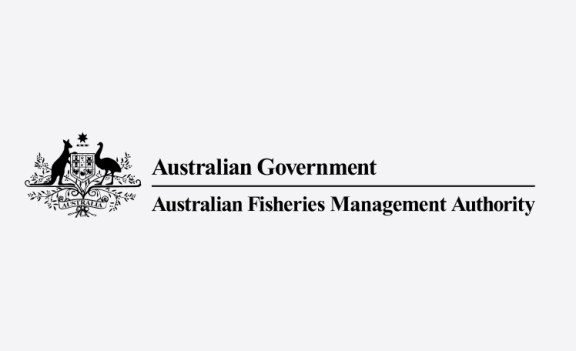 |
| Type: | Amount: | Image: |
|---|---|---|
| Fisheries Officers | 200 |  |
| Unit: | Size: | Base: |
|---|---|---|
| National Compliance Operations | 50x Fisheries Officers | Canberra Office |
| Northern Fisheries Compliance Operations | 50x Fisheries Officers | Darwin Office |
| Torres Strait Fisheries Compliance Operations | 50x Fisheries Officers | Thursday Island Office |
| Tuna and International Fisheries Compliance Operations | 50x Fisheries Officers | Lakes Entrance Office |
| Joint Authority: | Management Responsibility: | Governing Act: | Partner Agencies: |
|---|---|---|---|
| Queensland Fisheries Joint Authority |
| Queensland Fisheries Act 1994 |
|
| Western Australia Fisheries Joint Authority |
| Western Australian Fish Resources Management Act 1994 |
|
| Northern Territory Fisheries Joint Authority |
| Northern Territory Fisheries Act 1988 |
|
| Torres Strait Protected Zone Joint Authority |
| Torres Strait Fisheries Act 1984 |
|
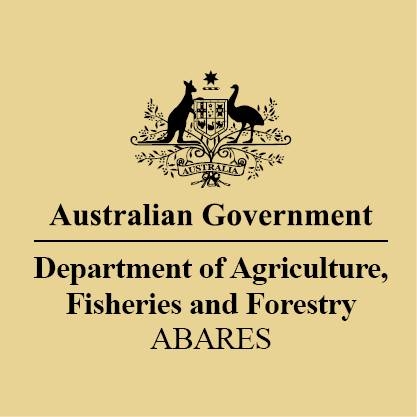 |
Overview |
| The Australian Bureau of Agricultural and Resource Economics and Sciences (ABARES) is a federal research branch of the Australian Government Department of Agriculture, Fisheries and Forestry, located in Canberra, Australia. ABARES was established on 21 August 1945 as the Bureau of Agricultural Economics (BAE), and is also involved in commercial consultancy. The main role of ABARES is to provide "professionally independent data, research, analysis and advice that informs public and private decisions affecting Australian agriculture, fisheries and forestry". ABARES maintains the AgSurf database which includes farm survey data on farm performance, production benchmarks, farm management, socioeconomic indicators relating to the grains, beef, sheep and dairy industries in Australia. ABARES has received funding from business and industry groups. ABARES collects a broad range of commodity, climate and agricultural data. The data ABARES collects is the chief source of publicly available data for Australian agricultural and resource economics related commodities and industries, and has been described as more accurate in these fields than other organisations. ABARES' surveys are sometimes collected via face-to-face interviews. Compared with other national agricultural and resource economics data collection agencies, ABARES is considered one of the more reliable and thorough. While ABARES does collate and produce reports exclusively within ABARES, often, ABARES will co-produce reports and documents with industry groups. By working collaboratively, the advice ABARES and the private entity provide will be received more effectively than information provided solely by ABARES or a private entity. ABARES collates three annual agricultural surveys which includes:
|
Australian Agricultural and Grazing Industries Survey (AAGIS) Zones and Regions |
 |
| ABARES additionally collaborates with many other Australian government agencies to collect data on specific industries that may overlap with the other agency: |
| Collaboration name: | Other agencies involved: | Description: |
|---|---|---|
| Farm-Level Agricultural Dataset (FLAD) | Department of the Environment and the Australian Bureau of Statistics | The partnership has been undertaken to improve understanding of how drought and climate variability are impacting Australian Farm production. FLAD will enable analysis of changes in agricultural production over time for a wider range of researchers. More broadly, the methods used to incorporate location information will pave the way for understanding how businesses of all types are impacted by a range of nearby physical environment variables e.g. temperature, air quality, or urban infrastructure. |
| Physical Environment Analysis Network (PEAN) | Department of the Environment, Australian Bureau of Statistics, Bureau of Meteorology, CSIRO and Geoscience Australia | PEAN was established in under the Data Integration Partnership for Australia (DIPA). The main objective of PEAN is to increase the value of the government's scientific and administrative data on the physical environment, agriculture, energy, biodiversity, and on supporting Indigenous aspirations. |
| National Agricultural Statistics Review (NASR) | Australian Bureau of Statistics | NASR was established with the objective to consider all aspects of the national agricultural statistical information system and assess its ability to inform decision-making. The review seeks to identify opportunities to improve the system and develop a framework for ongoing assessment, coordination, and governance of information needs into the future. |
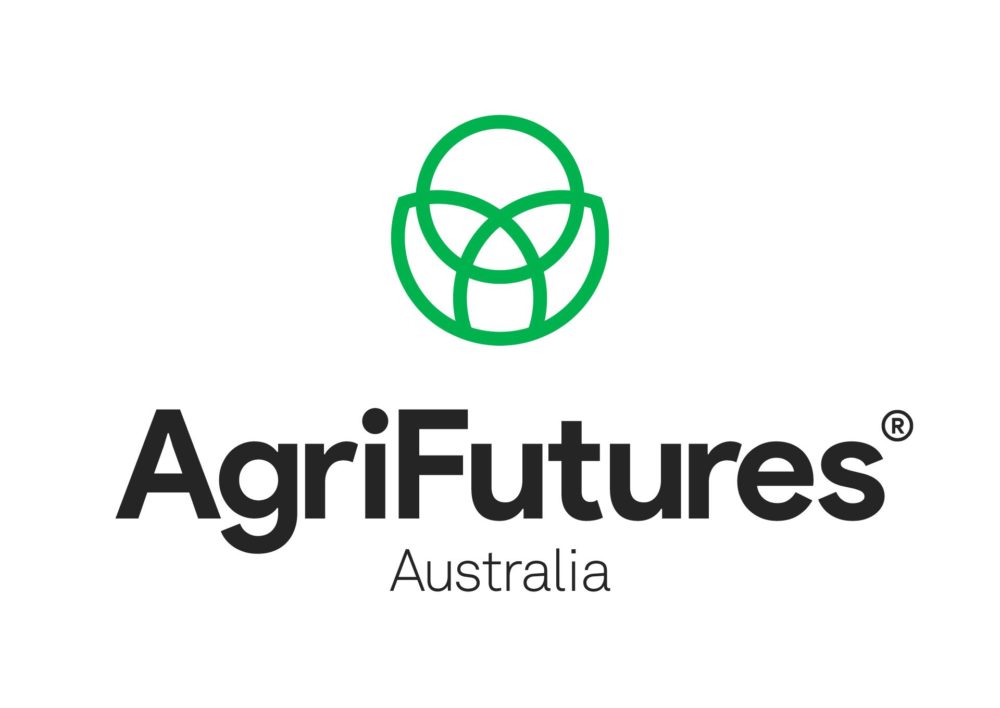 |
Overview |
| The Rural Industries Research and Development Corporation (RIRDC) (trading as AgriFutures Australia), is an Australian statutory corporation set up by the Australian Government in 1990, under the Primary Industries Research and Development Act 1989. It was set up by the Australian Government to work with Australian rural industries on the organisation, and funding of their research and development needs, in particular for new and emerging industries and for national rural issues. Apart from the annual appropriation from the government, funding comes from industry levies and voluntary industry contributions, and government-specific programs, private companies, rural RDCs, state and territory governments and other research providers. AgriFuture's focus is agriculture, aiming to improve and grow the profitability of the sector. Australian rural industries and the Australian Government (through the Department of Agriculture, Fisheries and Forestry) are major partner-stakeholders. It works to attract and help train agriculturalists and future rural leaders, engages in research into important issues for the sector, and helps to develop the potential of new industry, such as camel milk. In addition, it performs R&D for established industries without their own RDCs, such as the rice, thoroughbred horse, and tea tree oil industries. The organisation also hosts the AgriFutures Rural Women's Award to support the role women play in rural and regional businesses, industries and communities. |
Programs |
| Program: | Description: | Collaboration: | Sector/Industry: |
|---|---|---|---|
| Emerging Tropical Fruits | Identify and promote five tropical fruits with market growth potential, the five fruits are: jackfruit, rambutan, durian, dragon fruit and longan | Government of Thailand? | Fruit |
 |
Overview |
| The Australian Pesticides and Veterinary Medicines Authority (APVMA) is the Australian Government statutory agency responsible for the management and regulation of all agricultural and veterinary chemical products in Australia. The APVMA was established on 15 June 1993 as the National Registration Authority for Agricultural and Veterinary Chemicals, under the Agricultural and Veterinary Chemicals (Administration) Act 1992. Any agricultural or veterinary product that is manufactured, sold, imported, or used in Australia must first be registered by the APVMA. To be registered, the process may include scientific evaluations of the safety and efficacy of the product. The regulatory framework for managing agricultural and veterinary (agvet) chemicals in Australia is collectively referred to as the National Registration Scheme for Agricultural and Veterinary Chemicals (NRS). The NRS is a partnership between the Commonwealth and the states and territories, with a shared division of responsibilities. Individuals, companies, organisations, trade associations and other groups can submit an applciation to the APVMA to:
|
 |
Overview |
The Regional Investment Corporation (RIC) is an Australian Government provider of low-interest loans for farm businesses and farm-related small businesses. RIC’s purpose is to support the growth, resilience and sustainability of Australia’s agricultural economy. The RIC was established by the Regional Investment Corporation Act (RIC Act). The RIC’s function, as described in the RIC Act, is to administer farm business loans which includes and is not limited to:
|
 |
Overview |
| The Thailand-Australia Partnership on Food Security in the Red Meat and Cattle Sector (the Partnership) is a bilateral initiative established in 2005. It aims to develop a competitive, efficient and sustainable Thailand-Australia red meat and cattle industry as part of a globally competitive supply chain. The Partnership is a unique forum that brings together Thai and Australian decision makers from government and industry. Together they foster enduring relations and to maximise the opportunities for development and collaboration amongst the Thai and Australian red meat and cattle sectors. We co-chair the Partnership along with the Thailand Ministry of Agriculture and Cooperatives. Together we act as secretariat support for our respective countries. Reference groups advise us on Partnership priorities and industry issues more broadly. They comprise industry members, and are formed in line with the Partnership’s priorities, including:
Thailand-Australia Commercial Cattle Breeding Program (TACCB)The TACCB works with medium to large enterprises and commercial smallholder cooperatives to develop commercially sustainable beef cattle breeding models. The outcomes of this project will be shared with the broader commercial beef cattle industry in Thailand. This will enable innovation, expansion and investment in the sector.Northern Territory Cattlemen’s Association (NTCA) Pastoral Student ProgramThai undergraduate agricultural students undertake a combination of competency-based, accredited learning and real industry experience through extensive industry training and placements at selected corporate and family run cattle stations in the Northern Territory.The Partnership's Internship ProgramThe Partnership develops an internship program which aims to provide stronger pathways to employment in the Thai red meat and cattle sector by exposing the interns to firsthand experience in Thai cattle industry. From industry point of view, the internship program is valued as an effective mechanism to identify potential employees. |
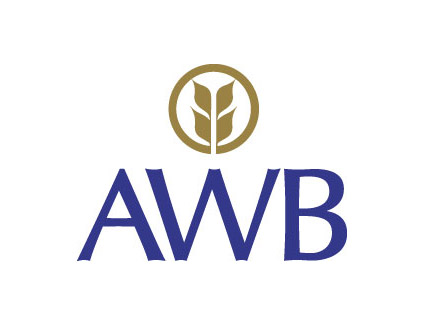 |
Overview |
The Australian Wheat Board (AWB Limited) is a major grain marketing organisation based in Australia. The AWB was founded in 1939 by the Government of Australia to regulate the wheat market after the excesses of the Great Depression. The single desk dates to this period. This type of arrangement was not unique to Australia, as the Canadian Wheat Board was created in 1935 in a similar fashion. AWB Limited is a holding company owning a number of subsidiaries. Its shares are freely traded on the Australian Securities Exchange. Some of these subsidiaries exist due to legislative requirements relating to the operation of the single desk; others exist for the purpose of controlling credit risk. The current subsidiaries are:
|
 |
Overview |
Wine Australia is an Australian Government statutory corporation that promotes and regulates the Australian wine industry. Wine Australia determines the boundaries of Australia's wine regions and sometimes names them. Wine Australia also regulates wine exports, ensuring the quality and integrity of each shipment of wine exported. Wine Australia has three main departments; Compliance, Market Development and Knowledge Development. Wine Australia has its headquarters in Adelaide. The aims of Wine Australia include:
|
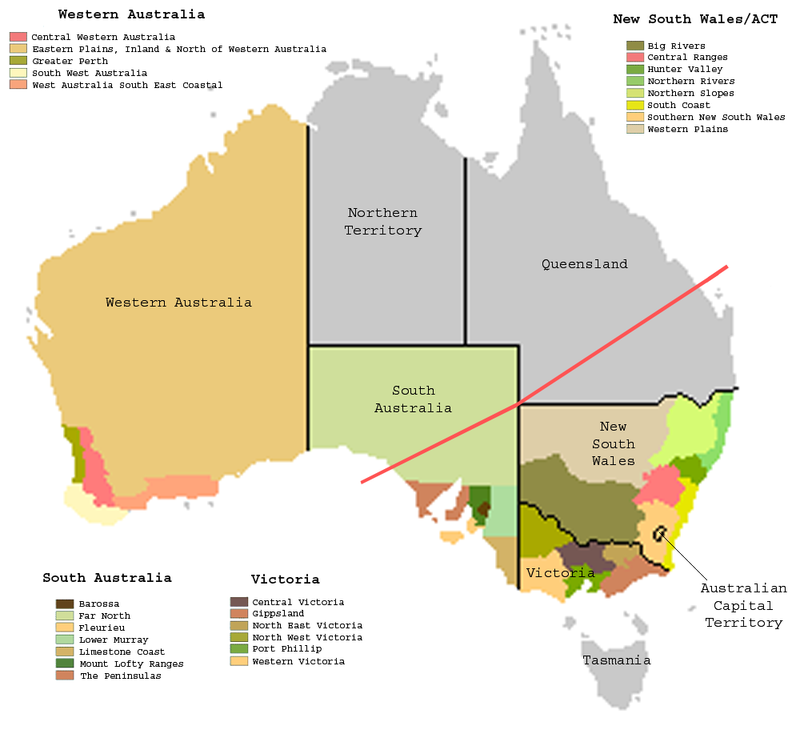 |
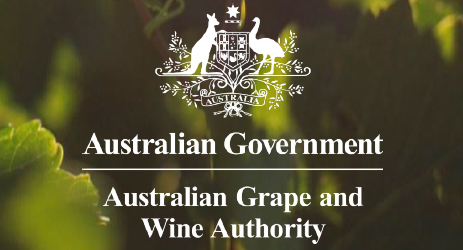  |
Overview |
| The Australian Grape and Wine Authority is responsible for research, development and extension of the wine industry in Australia, including protecting the reputation of Australian wine. The Australian Grape and Wine Authority includes a regulatory body that ensures wine production complies with the Food Standards Code and ensures that information on labels of Australian wine is accurate, including geographic indicators. |
 |
Overview |
| Grains Research and Development Corporation is an Australian research statutory corporation founded in October 1990 under the Primary Industries and Energy Research and Development Act, 1989 (PIERD Act). The GRDC is one of the world's leading grains research organisations, responsible for planning, investing in and overseeing research development and extension to deliver improvements in production, sustainability and profitability across the Australian grains industry. GRDC is a statutory corporation, established in 1990 under the Primary Industries Research and Development Act 1989. GRDC is mainly funded through statutory levies, disbursed under the Primary Industries Levies and Australian Government funds for eligible R&D. GRDC's primary objective is to drive the discovery, development and delivery of world-class innovation to enhance the productivity, profitability and sustainability of Australian grain growers and benefit the industry and the wider community. GRDC coordinates and funds research and development (R&D) activities, and monitors, evaluates and reports on the impact of R&D activities on the grains industry and the wider community. GRDC also facilitates the dissemination, adoption and commercialisation of the results of R&D. |
 |
Overview |
| The Fisheries Research and Development Corporation (FRDC) is a statutory corporation that manages research and development investment by the Australian Government and the Australian fishing and aquaculture commercial, recreational and Indigenous sectors. At its inception in 1992, the corporation's major focus was on research concerning the management of commercial wild-catch fisheries and, to a lesser extent, aquaculture. Since then, the scope has widened greatly to encompass economic, environmental and social aspects of the entire fishing and aquaculture commercial, recreational and indigenous sectors – that is, the recreational and indigenous customary sectors in addition to the commercial wild-catch and aquaculture sectors. The corporation's strategic investments in research, development and extension activities benefit all its stakeholders. However, the FRDC is unique among the corporations in balancing its investment between natural resource management and industry productivity and development. |
 |
Overview |
| The Cotton Research and Development Corporation (CRDC) was established by the Australian Government to work with industry to invest in research, development and extension (RD&E) for a more profitable, sustainable and dynamic cotton industry. CRDC is based in Narrabri, the centre of one of Australia's major cotton growing regions and the location of the major cotton research facility, the Australian Cotton Research Institute. The purpose of the CRDC is to support the performance of the cotton industry: helping to increase both productivity and profitability of our growers. Geographically, the industry continues to go through a period of growth, continuing its expansion from its predominant growing base in New South Wales (NSW) and southern and central Queensland (Qld) to northern Victoria (VIC), far north Qld, the Northern Territory (NT) and northern Western Australia (WA). |
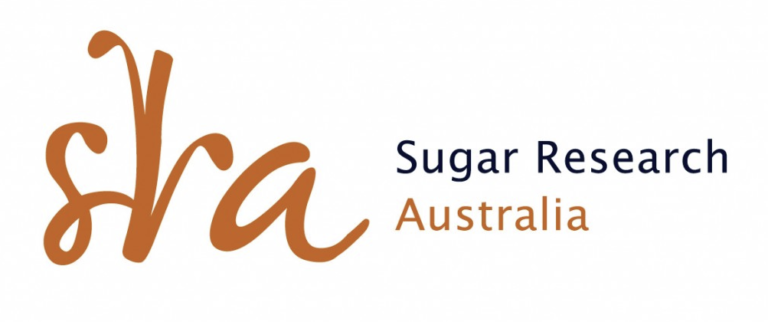 |
Overview |
| The Sugar Research and Development Corporation (trading as Sugar Research Australia (SRA)) is the specialist research organisation for the Australian sugarcane industry, established as a company owned by sugar growers and millers. They work in close partnership with growers, millers and service providers to deliver meaningful research impacts on the ground. Unique to the rural research and development corporation (RDC) landscape, SRA operates an extensive network of research farms, laboratories, and offices throughout the industry’s regions. SRA has facilities at ten locations stretching from Meringa, near Cairns in North Queensland, to Broadwater in northern New South Wales. The primary source of funding for SRA’s activities is the statutory sugarcane levy, which is paid by growers and millers to support research and development activities. SRA also receives matching funding and grants for eligible research and development activities from Commonwealth and Queensland government departments. |
 |
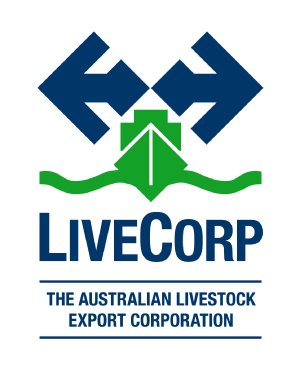 |
Overview |
| Australian Livestock Export Corporation Ltd (LiveCorp) was declared under the Australian Meat and Livestock Industry Act (1997) (AMLI Act) as the livestock export marketing body and the livestock export research body for the Australian livestock export industry. LiveCorp was incorporated as a national, member-funded public company on 18 February 1998, and was declared as a donor company under the AMLI Act on 7 July 1998, with effect from that date. Its mission is to enhance the productivity, sustainability and competitiveness of Australia's livestock export industry by undertaking R&D, providing technical support/services, and monitoring and reporting on programs and issues. The LiveCorp board is accountable to its members through the Corporations Act 2001 and to the Minister for Agriculture, Fisheries and Forestry. |
 |
Overview |
| The Australian Egg Corporation Limited (trading as Australian Eggs) is an industry services body and provider of marketing and research and development (R&D) services for the benefit of all stakeholders, principally egg producers. Australian Eggs is mainly funded through statutory levies, collected under the Egg Industry Service Provision Act 2002 and Australian Government funds for the purposes of 'approved' R&D. Australian Eggs is a public, non-listed company and was registered with the Australian Securities and Investments Commission on 18 November 2002 and commenced operations on 1 February 2003. The framework for Australian Eggs operations is established by the Act, the funding agreement with the Australian Government and the company's constitution. Australian Eggs services Australian egg producers irrespective of their size, location or farming system who distribute a wide variety of eggs and egg products to the local and international market. |
 |
Overview |
| Australian Pork Limited (APL) represents the coming together of three legacy organisations - Australian Pork Corporation; Pig Research and Development Corporation; and Pork Council of Australia. APL is a unique rural industry service body for the Australian pork industry. It is a producer-owned company delivering integrated services that enhance the viability of Australia's pig producers. The organisation aims to enhance opportunities for the sustainable growth of the Australian pork industry by delivering integrated marketing, innovation and policy services along the pork industry supply chain. APL pursues opportunities for the industry at both the domestic and international level. Funding for APL is primarily through statutory pig slaughter levies collected under the Primary Industries (Excise) Levies Act 1999 with additional research specific funds provided by the Australian Government. |
-contain-350x200.jpg) |
Overview |
| Dairy Australia is the Australian national body for the dairy industry, and a research and development corporation (RDC). It is mainly funded by the Dairy Services Levy, a tax paid by farmers based on milk production. It also acts as a funding body through which the federal Department of Agriculture provides funding for rural research and development in Australia. Dairy Australia also attracts funding at project level from state governments, universities, research organisations and other dairy support organisations. |
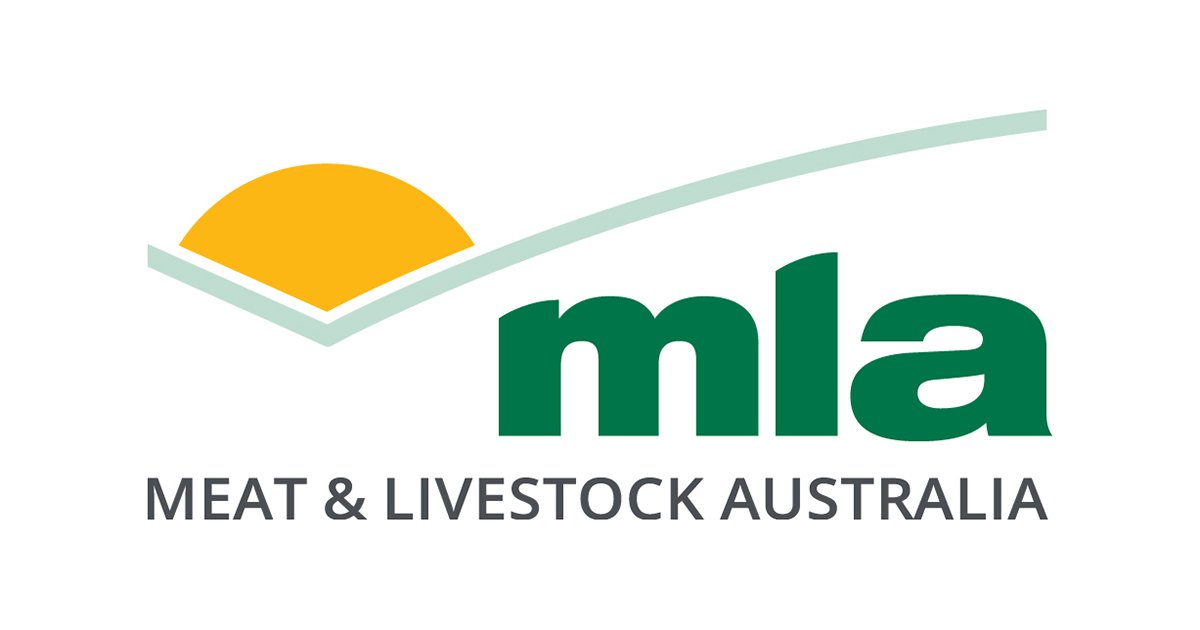 |
Overview |
| Meat and Livestock Australia Limited (MLA) delivers marketing and research programmes for Australia's cattle, sheep and goat producers. MLA has over 47,500 livestock producer members who have stakeholder entitlements in the company. MLA is primarily funded by transaction levies paid on livestock sales by producers. The Australian Government also contributes a dollar for each dollar MLA spends in research and development. This is supplemented by cooperative contributions from individual processors, wholesalers, food service operators and retailers. Processors and live animal exporters also pay levies under contract to MLA. The company is subject to ministerial direction in certain circumstances under section 69 of the Australian Meat and Livestock Industry Act 1997. MLA is not the only beneficiary of transaction levies; it is one of three organisations, including Animal Health Australia and the National Residue Survey, that receive a proportion of the funds. MLA has a board of 11 directors, appointed by members. |
 |
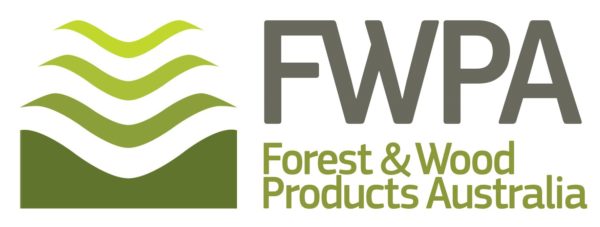 |
Overview |
| Forest and Wood Products Australia Limited (FWPA) is a not-for-profit company that provides national, integrated research and development services to the Australian forest and wood products industry. FWPA are committed to helping the forest and wood products industry to be collaborative, innovative, sustainable and competitive against other industries and products available in the marketplac. FWPA is paid amounts equal to industry levies imposed and collected under law and matching funds from the Commonwealth under the Primary Industries Levies and Charges Disbursement Act and FWPA has entered into a statutory funding agreement with the Commonwealth under that Act which relates to its receipt, management and application of funds paid to it. |
 |
Overview |
| Australian Wool Innovation Limited (AWI) is a not-for-profit company owned by more than 25,000 Australian wool levy payers who have registered as AWI shareholders. The company has a statutory funding agreement under, which it receives industry levies and matching funds from the Australian Government. The company invests in research and development; marketing and promotion to enhance the profitability, international competitiveness and sustainability of the Australian wool industry; and to increase the demand and market access for Australian wool. |
 |
Overview |
| Horticulture Innovation Australia Limited (HIAL) (trading as Hort Innovation) is a not-for-profit, grower-owned research and development company. It works in partnership with Australia's horticulture industries to invest in research, development and marketing programmes that provide benefit to industry and the wider community. HIAL was declared as the industry services body under subsection 9(1) of the Horticulture Marketing and Research and Development Services Act 2000. The company has a statutory funding agreement, under which it receives levies from industry and matching funds from the Australian Government, and is subject to ministerial direction in certain circumstances under section 29 of the Act. A board of nine directors is appointed by members. |
 |
Overview |
| The Australian Meat Processor Corporation (AMPC) is a research and development corporation for the red meat processing industry throughout Australia. AMPC's mandate is to support research, development and extension/education initiatives that are directed at improving the sustainability and efficiency of the meat processing industry. Red meat processor levies are strategically invested by AMPC in RD&E and marketing programmes aimed at delivering improvements to the processing sector and providing significant benefit to the whole of the red meat industry and the broader Australian community. |
Last edited:


